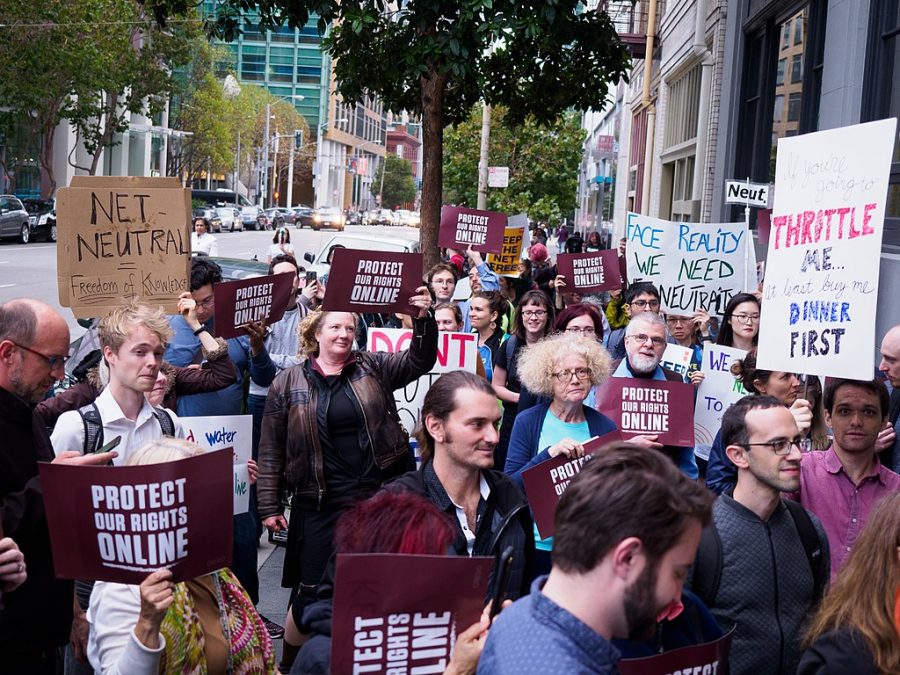Could You Be Losing Your Internet Privileges?
December 8, 2017
Recently, the web buzzed over a vote by the FCC on December 14; the vote determined whether or not the rules on net neutrality will be modified so that cable and internet providers can track and control what Internet users see and do online. The majority of the FCC voted to repeal net neutrality, reversing the 2015 laws by Barack Obama that stated that all content on the Internet is treated as equal.
The former net neutrality laws prevented Internet providers from blocking, slowing down, or charging more to users in order to access certain content on the Internet. Portugal has had no net neutrality for a longer time than the United States; one Internet provider called MEO causes users to pay separate costs for different Internet packages based on what websites and apps they use most. These separate packages allow for different websites and apps to work quicker than others.
The new rules devised by Ajit Pai, who is the FCC’s chairman under president Donald Trump, state that Internet providers in the United States can censor websites based on content, slow sites down to a crawl, and charge Internet users higher fees.
There have been many protests against Ajit Pai’s proposed plan, both online and “offline”. July 12 was “Battle for the Net Day” where a wide range of sites including Twitter, Etsy, SoundCloud, and DeviantArt encouraged users to email, call, and comment to members of Congress to urge them to vote against the plan; over 2 million comments to the FCC, 5 million emails, and 124,000 calls were made. There were also protests outside of Verizon stores across America against the plan to repeal net neutrality December 7, as Verizon is a supporter of the new plan. Other Internet providers looking to repeal net neutrality are Comcast and AT&T.
If you care about your freedom of speech online and want the government to continue using its laissez-faire approach towards content on the Internet that it’s been using since 2015, it’s still not too late to speak up on social media about net neutrality.












